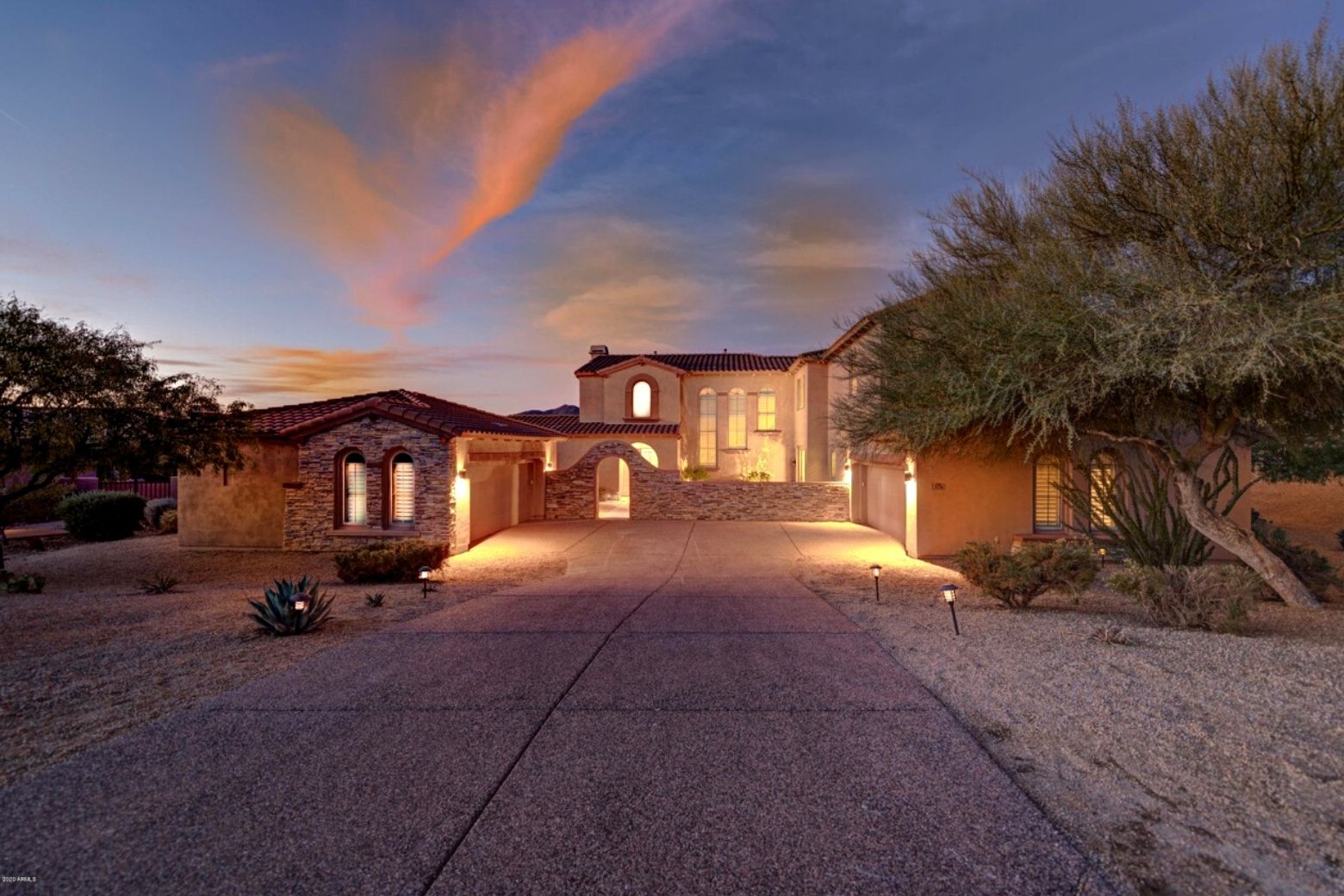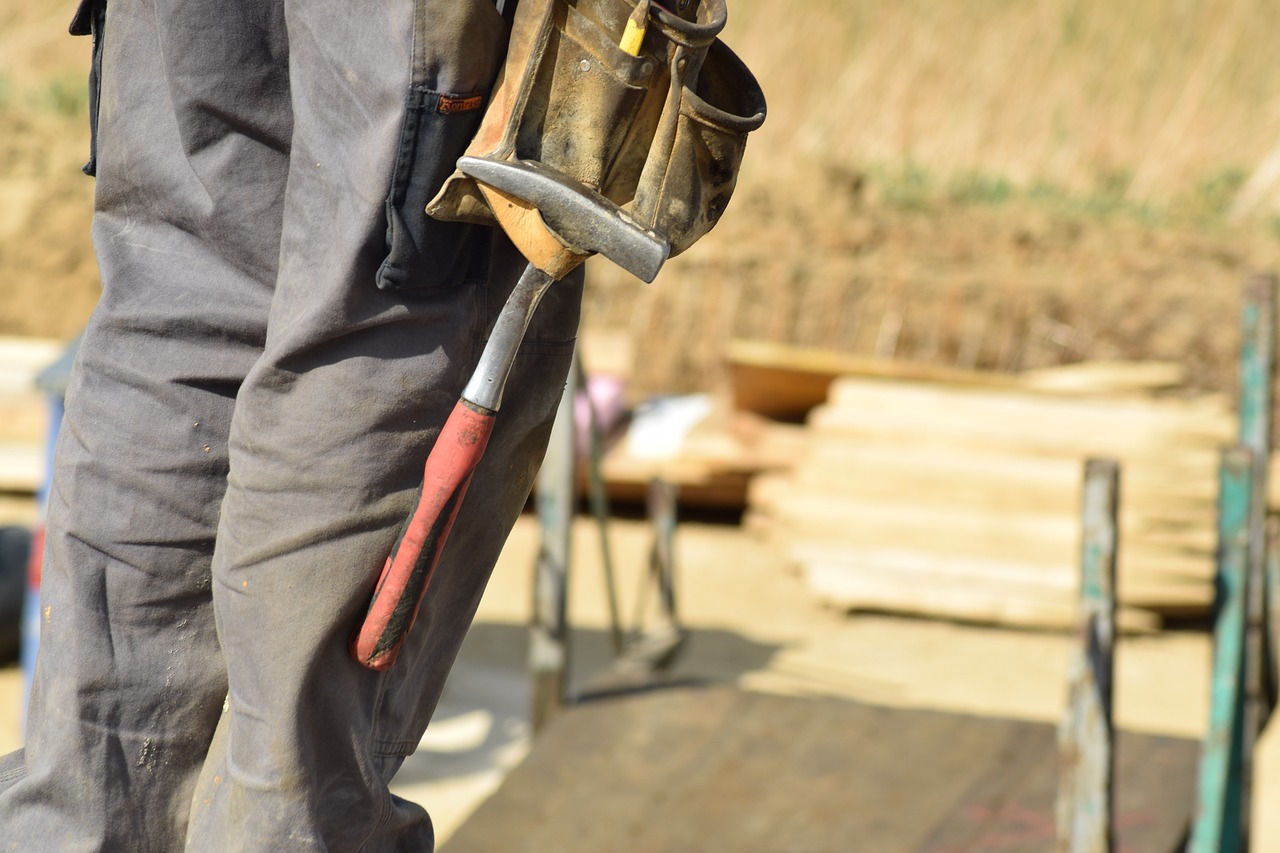The Skilled Labor Shortage
Does Finishing a Basement Increase Home Value? & Should You Finish Your Basement Before Selling?
A lot of people buy homes with unfinished basements thinking they’ll just finish it when they’ve saved up a little money. Unfortunately, these projects are often pushed off or forgotten—until it’s time to sell. When it comes time to put their house on the market, many homeowners find themselves wondering if they should finish their basement to increase home value. Also, while this renovation may boost your asking price, is it worth finishing a basement before you sell?
Why are Basements Left Unfinished?
Before we dive into the value that finishing your basement can add, let’s first go over why there are so many homes with unfinished basements in the United States.
From issues with flooding to the mere fact that basements can be cold and uninviting, there are several reasons why a builder or a homeowner may leave a basement unfinished. There is also the fact that in many areas across the U.S., space below ground does not count toward livable space and as a result, is not included in a listing’s square footage.
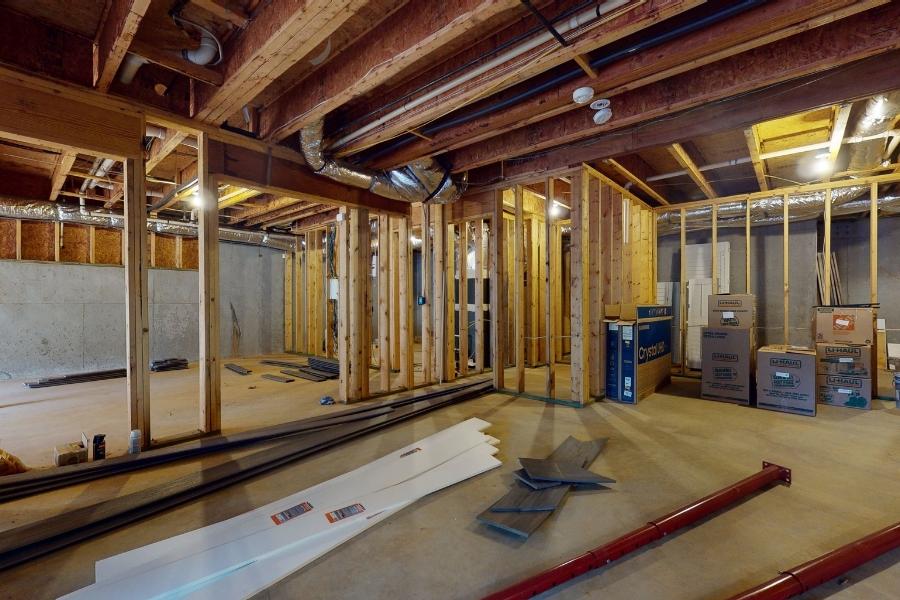
Does A Finished Basement Add Value?
The average size of a basement in the U.S. can be anywhere from 500 to 1,500 square feet.1 While that square footage may not always add to your listing’s square footage, it will impact how home buyers and appraisers view your home. A finished basement can increase your home’s market value and appraisal value so you can sell your house for more. So, while square footage may not always count, a finished basement increases home value regardless.
How Much Value Does a Finished Basement Add?
How much a finished basement adds to home value can vary. The average cost of finishing a basement in 2022 in the United States was $57,500, and the estimated cost recovered was $49,250. This equated to an average finished basement return on investment rate of 86%.3 While high, the ROI on a finished basement will change depending on size, level of work done, local market, what the space will be used for, and more.
Because determining how much value a finished basement adds to your home is not an exact science, you should discuss the project with a licensed real estate agent. They can show you the sale prices of comparable homes in your market both with and without finished basements to give you a better idea of resale value. Below are a few examples of projects where a finished basement increased home value and resulted in a big profit for the seller.
Project 1: Finished Basement Increases Home Value by $125,000
Outside of some deferred maintenance and minor touch-ups, the only thing we did for this listing was finish the basement to increase home value. After completion of the project, the house sold for $125,000 more than the initial as-is value estimate. This boost resulted in a $90,635 profit after project costs. Of course, we did a few other things for this project, but the finished basement alone added home value for the sellers—and the buyers. See the full project details here.
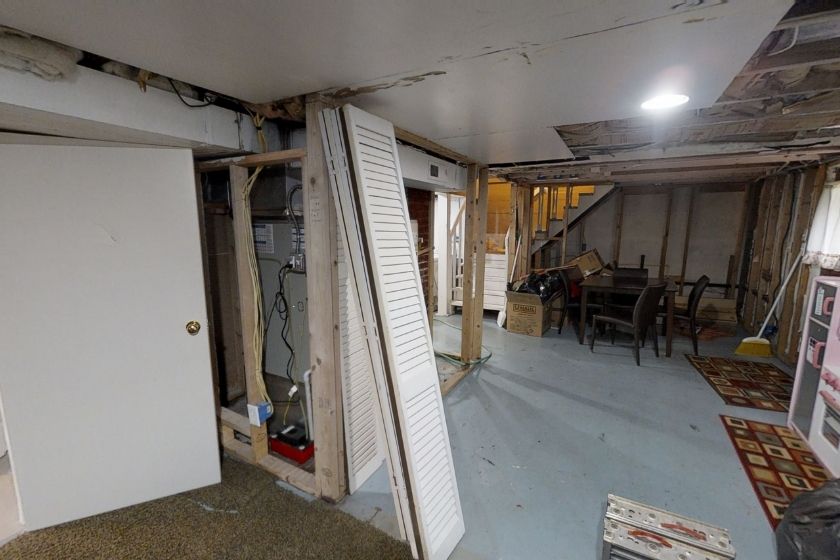
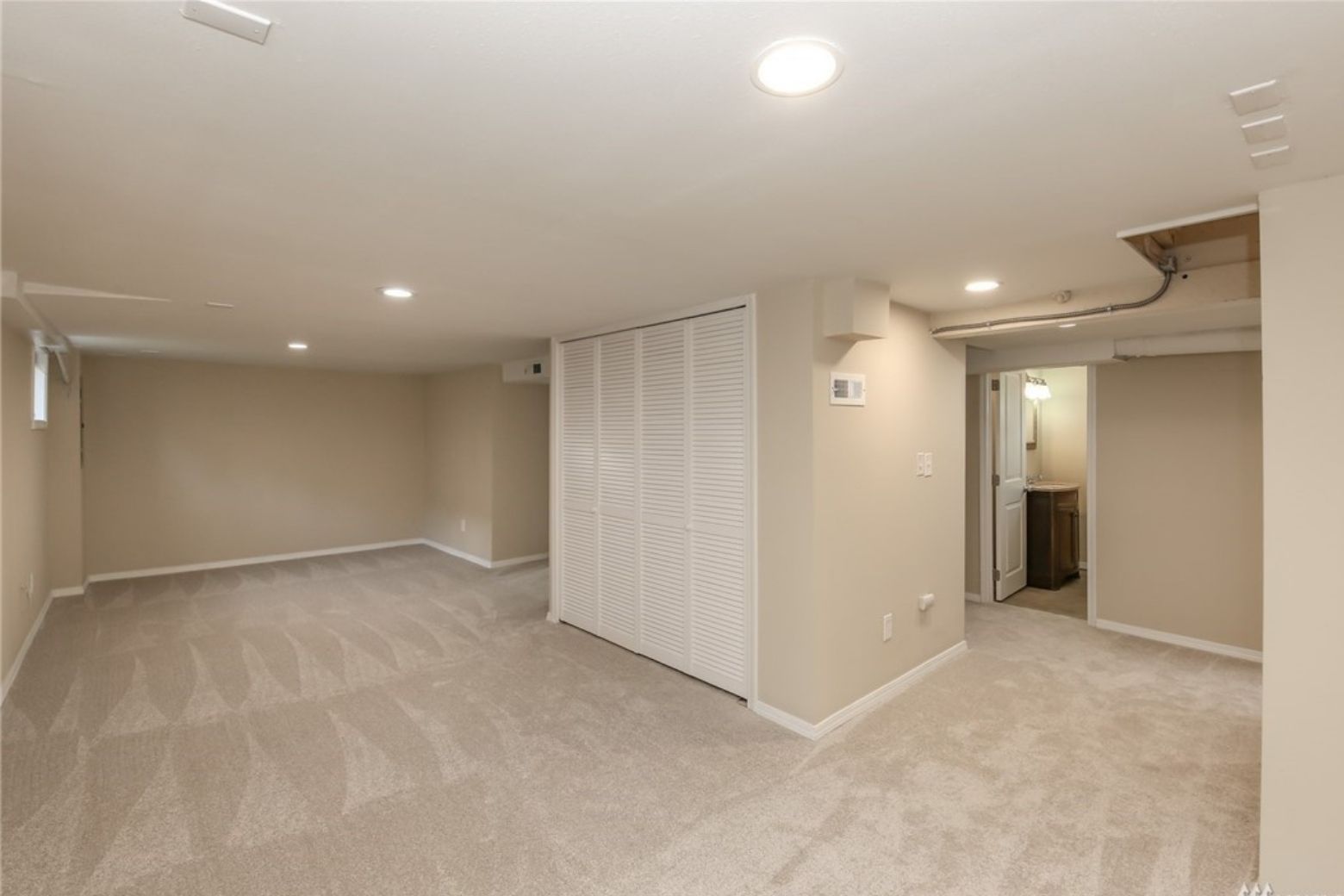
Project 2: Deep Cleaning, Repairs, & Major Updates
We did a little more than work on the basement for this listing, but it was a large focus for this project. In total, the updates, including finishing the basement, increased the value of the home by $80,000. After project costs, this resulted in a profit of $46,122 for the seller. This project also wrapped up in just 6 weeks. See the full project details here.
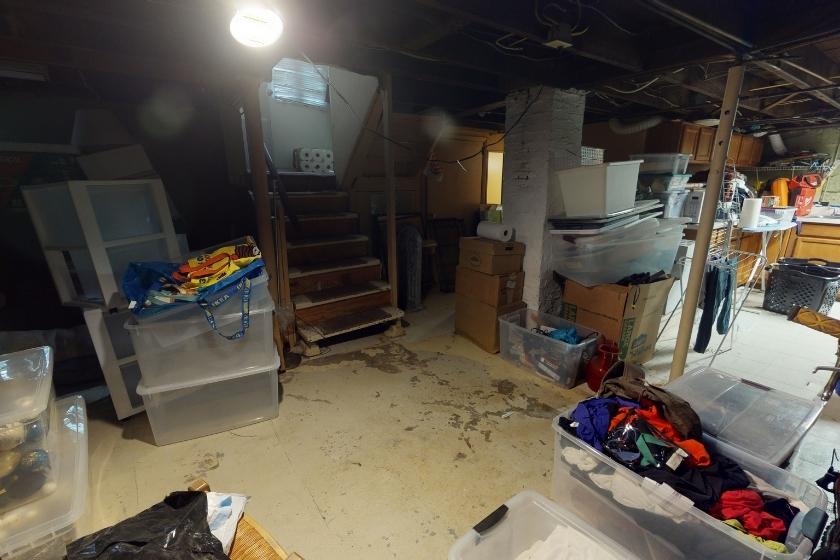
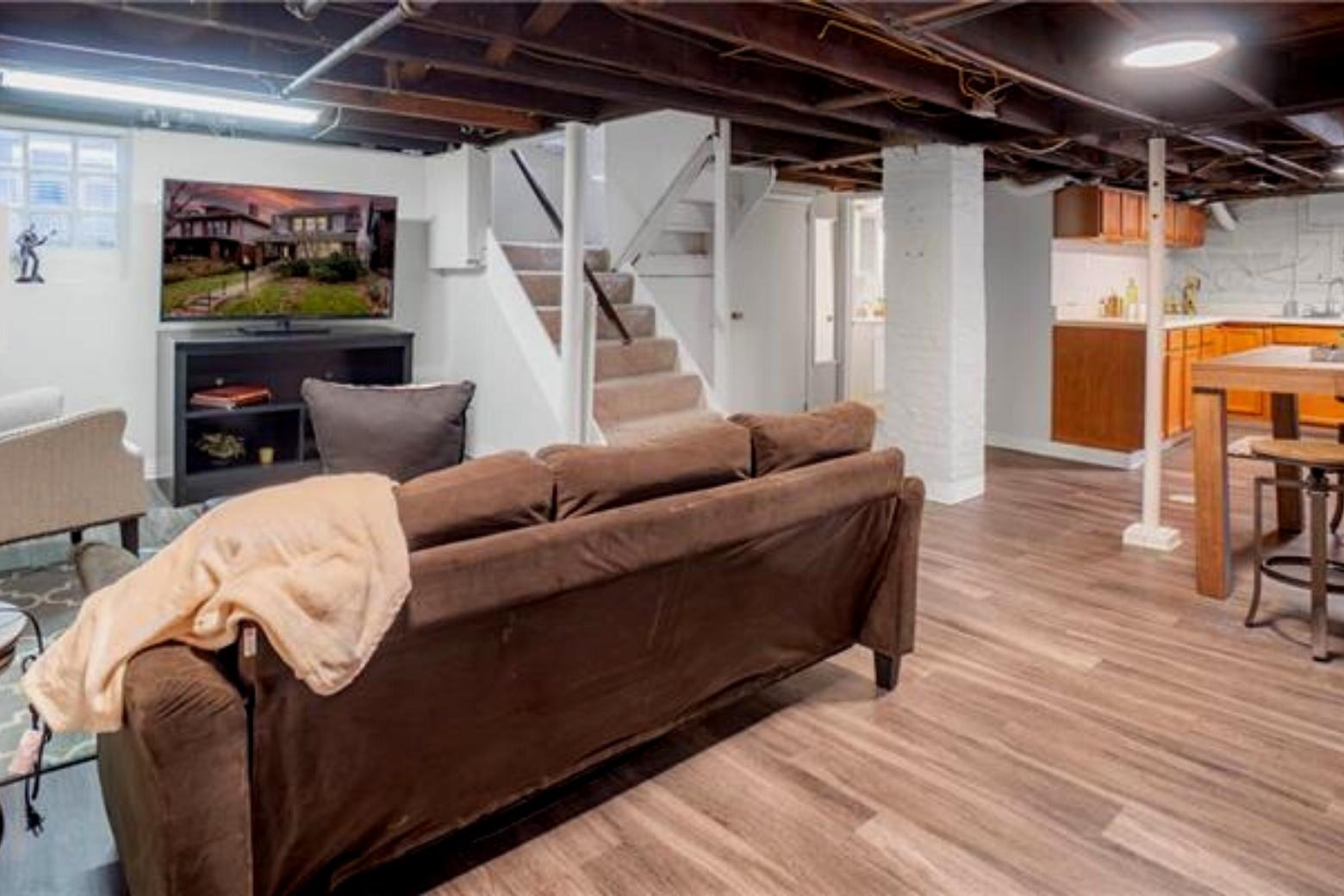
Is It Worth it to Finish a Basement Before Selling?
For a lot of homeowners, a finished basement increases home value enough that it will pay off when it comes time to sell. It can also give your home an edge in a competitive market. Especially with the endless possibilities the space can be. Basements can be game rooms, home theatres, bars, gyms, bedrooms, mother-in-law suites, and more. With the shift to working from home since the pandemic, some homebuyers are looking for extra space for a home office. Basements can also sometimes be rented out to help generate additional income. You do not even need to decide. Basements can be positioned as a flex space, so the buyer can ultimately decide what they want to do with the room.
Considerations Before Refinishing a Basement to Add Value
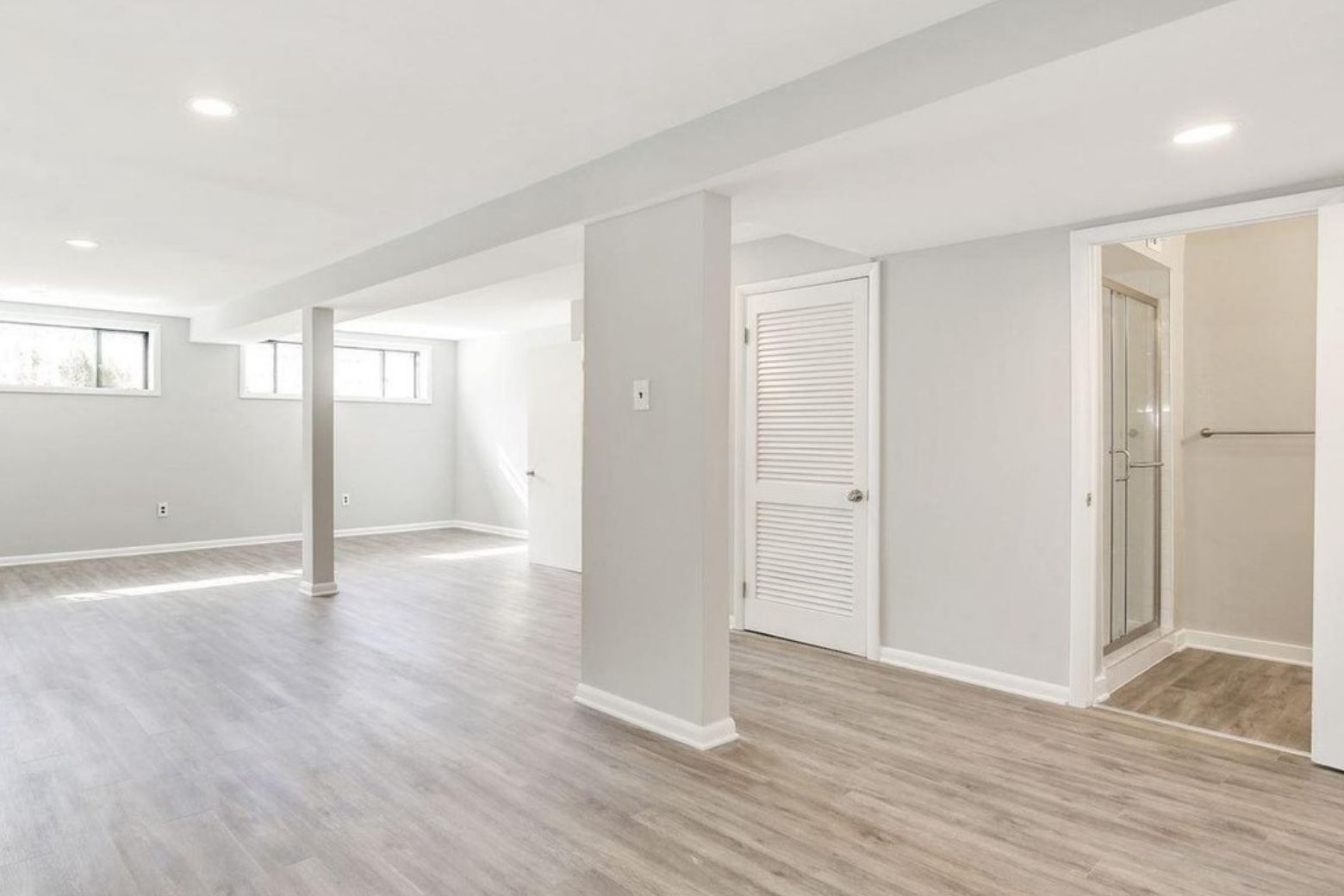
A finished basement’s value will be dependent on several factors, so it is important to take these into consideration before you decide to take on this renovation project.
- Market- Is a finished basement worth it in your market? What is the demand? In 2017 in the Pacific region of the United States, sellers recouped 86.5% of the cost of a basement remodel. In contrast, New England sellers only recouped 52.8% of the cost during that same year.2
- Local Laws & Codes– Do you need a permit? What building codes do you need to follow? Will this be considered living space? Is there a way to make it into living space? You should have the answers to these questions before you consider building a finished basement to add value to your home.
- Problems– Do you have mold? How is the plumbing? Does the electrical wiring need to be updated? Make sure you note potential problems before starting this project as well as their added costs and time to complete.
- Materials- What quality of materials will give you the best return on your investment? What flooring should you use? Some materials are better than others for basements. Find out what materials are best for your space.
- Layout- How will this space be used? Should it be divided or one big room? A good layout can help sell the space, so you want to make sure you choose the layout that will give you the most value in return.
- Time- How much time do you have to devote to this project? How long until you decide to sell? If you have a tight window to complete the project, then it may be worth looking into other home improvements before selling instead.
Getting the Most Back When You Sell
While a finished basement increases home value, you shouldn’t necessarily stop there. With Curbio, you can make all your pre-sale home improvement projects before you list. We manage and execute the entire project. With our streamlined approach, we complete projects faster than the average general contractor.
Have your real estate agent submit a request for an estimate today to get started. Don’t have an agent? Contact us and we’ll help you find one from one of our partners.
Frequently Asked Questions
While most basement bedrooms won’t actually count as a bedroom because they’re underground, a basement bedroom can add value to your home. By one account, the value of basement bedrooms can fall anywhere from 50% to 70% of the value of a traditional bedroom.3
Basement bedrooms can be perfect for guests and in-laws who may want a little bit of privacy. Of course, if the new homeowners prefer, they can also use the space for something else. With flex spaces being so popular, it’s quite possible that adding a bedroom to your basement could be the right move.
If you are looking to increase the value of a finished basement, you want to choose a color that will make the space feel open. You also want a blank slate which allows buyers to transform the room into whatever they want. Just like for any part of the home, we recommend using neutral paint colors to attract more home buyers and sell faster.
Carpet is a common choice for basements because it adds a cozy feel to a part of the home that tends to feel cold. For basements that may experience flooding, LVT is often recommended because it’s waterproof. Which one is right for your home depends on both your space and your market.
Sources:
- Remodel Reality (2022). What’s the Average Size of a Basement?
- National Association of Realtors (2022). 2022 Remodeling Impact Report
- UpNest. Basement Bedrooms – 5 Tips for Added Value

